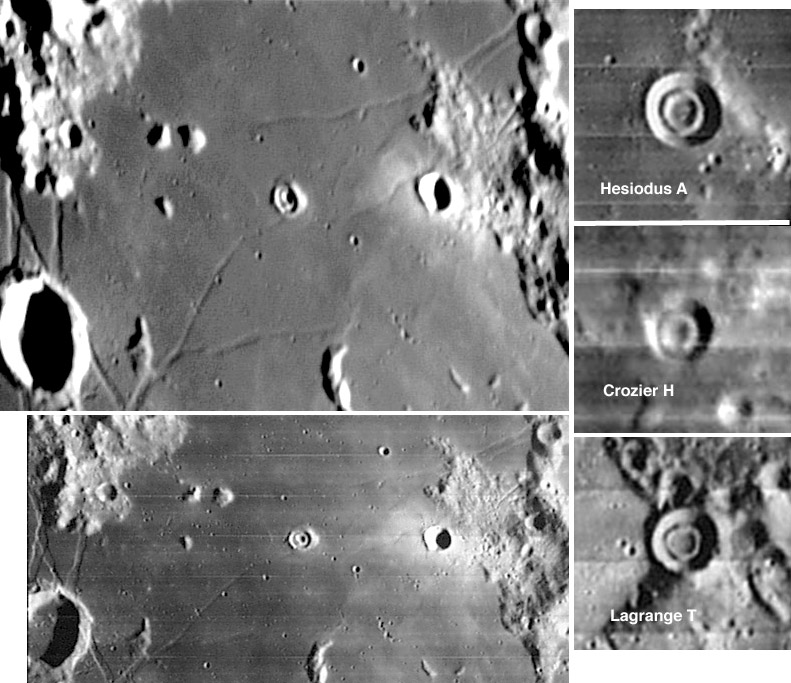
top left image by Bruno Daversin, bottom left from Lunar Orbiter IV 136-h3; right three from other LOIVs.
Concentric craters are relatively rare (about 50 are known), small craters (typically about 8 km in diameter) with round-rimmed rings nestled inside their rims. The three images on the right (from an earlier LPOD) show typical concentric crater (CC) morphology. Marth (the 7 km crater in the two left images) is commonly considered a CC, but should it be? The top left image by Lunar Orbiter Bruno and the lower left one from Lunar Orbiter IV show that between the inner and outer rings Marth has a flat floor, unlike other CC. On the LOIV image the inner feature in Marth looks like it might have a rounded rim, but in Bruno’s image the only significant elevation seems to be a tiny hill on the south side of the inner feature; most of the inner depression seems to have only a very slight rim. The curved shadow of the inner feature looks like that of a typical small impact crater (like the one at top right), with a bright side and a dark side indicating a simple bowl shape. I think Marth looks more like two random impacts than like any known CC. It would be rare for such a second impact to randomly happen right in the middle of a somewhat larger crater, but there are nearly 11,000 craters on the lunar nearside the size of the inner ring and larger; rare events become certain events if an experiment is repeated many times. Bruno’s image also shows that the small rille near Marth is slightly interupted by the crater, but appears to continue on to the east. Just where the rille meets Marth it seems to affect the rim - this is strange. More tomorrow!
Technical Details:
Date unknown to CAW, Ludiver Observatory 600 mm (24″) Schmidt-Cassegrain B&W webcam.
Related Links:
Rükl plate 63
CC - a view from nearly 30 years ago
Ludiver’s Moon photos
Yesterday's LPOD: Highland Rilles
Tomorrow's LPOD: More Marth
COMMENTS?
Register, Log in, and join in the comments.



